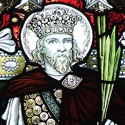|
How does the Coptic Church fit in all this?
|
|
|
|

|
| # ? May 12, 2024 15:32 |
|
Grand Prize Winner posted:How does the Coptic Church fit in all this? Wikipedia mentions the Coptic Orthodox Church, which is a member of the Oriental Orthodox Churches. The head of the church and the See of Alexandria is the Pope of Alexandria and Patriarch of All Africa on the Holy See of Saint Mark. It traces itself back to St. Mark, and broke off from the Eastern Orthodox Church back in the Council of Chalcedon, in 451 AD.
|
|
|
|
Grand Prize Winner posted:How does the Coptic Church fit in all this? The Coptic church is part of (in communion with) the oriental orthodox churches, like the Armenian. The splits basically happened when some regions refused to accept the findings of the various ecumenical councils. The church of the east only accepted the first two according to wikipedia, the oriental orthodoxes only the first three, and the regular eastern orthodox accept the first seven. The catholics continued to have councils of their own (14 more in fact) but basically didn't even bother to invite the easterners. The councils were basically meetings of bishops arranged by the Roman state to hash out official theology. Only the first seven councils were actually arranged by the Byzantine Emperor, the rest were just called by the pope. The internet says one was even called by the Holy Roman Emperor. So the split of the orthodox and catholic churches was more political than anything; The earlier splits of the church of the east and oriental churches was more a fiery religious debate.
|
|
|
|
icantfindaname posted:So the split of the orthodox and catholic churches was more political than anything; The earlier splits of the church of the east and oriental churches was more a fiery religious debate. In the final years of the Byzantine Empire there was a rather desperate attempt to re-unite the Catholic and (regular) Orthodox Churches, largely as a means of securing Western support against the Ottoman threat. In fact, after a Council of Catholic and Orthodox bishops and theologians in Florence in 1438, union was officially proclaimed. It got nowhere in practice due to the hostility of most of the clergy and laity of the Greek Orthodox church and practically everyone in the other Orthodox churches, especially in Russia which was by that stage the main Orthodox country not under Muslim rule. The Russians didn't like Catholicism, amongst other reasons, because it was the religion of the Poles. Poland was a major world power and a serious rival to Russia in those days.
|
|
|
|
Just finished the first season of Rome (Thanks for that, Thread!) and I'm curious regarding the accuracy of the depiction of the politics leading to Caesar's murder
|
|
|
|
I've always wondered - How did the Ethiopian Orthodox church come about? We've all heard about Roman missionaries like St. Patrick in Ireland and Saint Remigius baptising the Franks, but were there missionaries all over the Roman world?
|
|
|
|
roadhead posted:Just finished the first season of Rome (Thanks for that, Thread!) and I'm curious regarding the accuracy of the depiction of the politics leading to Caesar's murder I don't think you need to put a spoiler on Caesar's murder. PS. The Titanic sinks I don't have a question, but I must thank all of the people providing content, it has kept me occupied at my deadshit job for a while now. Fascinating stuff. Actually, I have a rather crass question about homosexuality and gladiators. Earlier in the thread it was said that gladiators were huge super stars that happened to be slaves, but they were treated very well. Last page GF said that sex between men was more of a power play in Rome and it was usually a higher up loving a slave or young man. But would have they actually had sex with gladiators even though they had this superstar status?
|
|
|
|
Big Willy Style posted:I don't think you need to put a spoiler on Caesar's murder. But what if one doesn't know that his murder coincides with the first season ending?  To clear that up, at the end of the first season of HBO's Rome Caesar dies.
|
|
|
|
Frosted Flake posted:I've always wondered - How did the Ethiopian Orthodox church come about? I've always wondered how Bob Geldof and co could wonder if the Ethopians knew it was Christmas when Ethiopia has been christian for a lot longer than England or most parts of Europe for that matter. If I remember correctly the missionaries that converted the king of Ethiopia in the fourth century were Syrians. FreudianSlippers fucked around with this message at 21:18 on Jul 24, 2012 |
|
|
|
Nenonen posted:But what if one doesn't know that his murder coincides with the first season ending? WHAT spoiler that poo poo Did Romans trade much with the people beyond their borders, aside from to the east? I mean like the Germanic tribes, w/e the gently caress lived north of Hadrian's Wall, Scandinavians, Africans on the western edge of Africa? I remember something earlier about how they had contact with the merry folks in Ireland.
|
|
|
|
CAESAR DIES??? Welp, now what am I gonna watch. I won't usurp the cheese on the question since he can probably point out every little technicality but in general the politics leading up the Caesar's death seem pretty accurate. Heck, they don't even make him dictator for life right away(which would've been the easy thing to do since most viewers beyond history nerds would just accept that's how it was since they know Caesar as a dictator) and differentiate when he was appointed dictator for 10 years and when he was granted the power of dictator for life the month before his death. Actually I just watched episode one of season two earlier. I think my favorite thing is the smug way Antony says "Aw, the lictors guild?" when Brutus lists them as one of the groups on his side. Antony gives no fucks. e: Actually, the most amusing line, and a nice little show of how culture changes over time, in the last episode when the family is sitting down to dinner and they're joking about marriage, and in this case marrying for love, and Niobe says "Love each other from the start? Well that would be a strange marriage." quote:Did Romans trade much with the people beyond their borders, aside from to the east? I mean like the Germanic tribes, w/e the gently caress lived north of Hadrian's Wall, Scandinavians, Africans on the western edge of Africa? Sure, on different levels. But as was said much earlier, if you wanted the good poo poo, you went east. But it wasn't just some rabid no man's land that no one ventured into past the empire borders. Amused to Death fucked around with this message at 01:28 on Jul 25, 2012 |
|
|
|
Iseeyouseemeseeyou posted:WHAT spoiler that poo poo Yes, they did. There is a good argument to be made for the projection of Roman power past traditional Roman borders (which were often rather porous anyways, such as Hadrian's Wall) through trade and the demand for Roman goods. A good example at random is that many swords thrown into bogs as dedications in Denmark during the first centuries AD are Roman in origin; this extended to all sorts of other objects, however, ranging from wine vessels to jewelry and horse equipment.
|
|
|
|
MeinPanzer posted:Yes, they did. There is a good argument to be made for the projection of Roman power past traditional Roman borders (which were often rather porous anyways, such as Hadrian's Wall) through trade and the demand for Roman goods. A good example at random is that many swords thrown into bogs as dedications in Denmark during the first centuries AD are Roman in origin; this extended to all sorts of other objects, however, ranging from wine vessels to jewelry and horse equipment. Exactly, and all the border fortifications (Limes, Hadrian's Wall) are more about "border customs" than retaining invasions.
|
|
|
|
Frosted Flake posted:I've always wondered - How did the Ethiopian Orthodox church come about? Until 1959, the Ethiopian Church was a part of the Coptic Church in Egypt, and all Ethiopian archbishops (with the exception of the very last one) were Egypts or at least Non-Ethiopians as well. The very first Abuna (title of the head of the Ethiopian Church) was St Frumentius, a Greek-speaking Syrian from Tyre, who according to legend was kidnapped as a boy by Ethiopians and ended up as a slave of the Royal court, soon gaining much prestige. He was set free again eventually, but stayed in Ethiopia to assist with the education of the Ethiopian princes and to spread Christianity there - he encouraged the Christian merchants living there to celebrate their faith more openly, for example. Eventually he was ordained bishop by the Coptic pope, baptised the new Ethiopian king and set up a regular church hierarchy in Ethiopia. Early Christianity seems to have been a predominantly urban religion. The very first missionaries were Paul and the Apostles, who all travelled extensively throughout the Empire and even out of it, though most of the missionary efforts were focused on the Eastern half of the Empire - naturally it was closer to Palestine as the "epicentre" of Christianity, Greek-speaking, perhaps more used to monotheistic religions (could be pulling that one out of my rear end, though) and finally more urbanised than the West. Look at this map:  Dark blue: spread of Christianity up to 325 AD, light blue: AD 600 Early Christianity also seems to have been pretty successful with the urban middle class, many of them merchants who had lots of opportunities to travel and preach their faith alongside. No "full-time" missionaries then (at least not mainly), but merchants or whatnot combining their job with their religion. I'm sure I have read somewhere that it was recently found that Christianity was in fact surprisingly successful in rural areas as well. I can't remember where, though
|
|
|
|
roadhead posted:Just finished the first season of Rome (Thanks for that, Thread!) and I'm curious regarding the accuracy of the depiction of the politics leading to Caesar's murder Basically accurate. Was there a specific thing that stood out? They just took all that from the story as it's been passed down. Pullo and Vorenus weren't involved with the real thing, they were mentioned in one paragraph of The Gallic Wars but otherwise don't play into the story. That's the only big difference I can think of. Big Willy Style posted:But would have they actually had sex with gladiators even though they had this superstar status? The superstar gladiators were bangin' everything that would hold still, best as we can tell. Think modern athletes. Iseeyouseemeseeyou posted:Did Romans trade much with the people beyond their borders, aside from to the east? I mean like the Germanic tribes, w/e the gently caress lived north of Hadrian's Wall, Scandinavians, Africans on the western edge of Africa? Yep. Roman trade goods are found everywhere and it went the other way too. The Roman trade sphere reached every inhabited part of Europe and Asia (not including islands necessarily, the only Asian island we've found Roman stuff on is Japan, Sri Lanka was on the map so probably traded there too), all of Africa north of the Sahara, and down the Nile/east coast into Ethiopia at least. Hadrian's Wall regulated trade in Caledonia, it was probably positioned where it is because it split the Caledonian tribes neatly in half and forced all movement to go through Roman controlled forts, which seems to have been effective in neutralizing them as a threat.
|
|
|
|
IIRC the Rome series fudges some of the minor political details, like Brutus' wife (cato's daughter) is never mentioned, servilia was cato's half sister or something as well which never comes up, atia was a composite of several historical women and a lot of fiction, etc. But the moral conflict that Brutus goes through over the conspiracy & assassination is basically accurate as far as we can know.
|
|
|
|
Grand Fromage posted:Basically accurate. Was there a specific thing that stood out? They just took all that from the story as it's been passed down. Pullo and Vorenus weren't involved with the real thing, they were mentioned in one paragraph of The Gallic Wars but otherwise don't play into the story. That's the only big difference I can think of. Did he really select 100 new senators from the Gauls and Celts? Was there a plebe (not Vorenus obviously) that he raised to the senate? I found it interesting that he seemed to be trying to make a better Rome that would endure forever and not necessarily grab all the power for him-self.
|
|
|
|
roadhead posted:Did he really select 100 new senators from the Gauls and Celts? Was there a plebe (not Vorenus obviously) that he raised to the senate? I found it interesting that he seemed to be trying to make a better Rome that would endure forever and not necessarily grab all the power for him-self. The Gracchi brothers were killed by the senate a hundred years before Caesar for trying to make Rome a better place. I am not knowledgeable about Caesar's policies, apart from the portrayal in the series, but it's not unreasonable that Caesar was also killed by the senate for the same reason. Of course, "making Rome a better place" is hard to distinguish between "trying to gain popular support in order to centralize power in oneself at the expense of the senate and other elites," so intention comes into play as well. I've always been taught the late Republic was an ongoing power struggle among preeminent individuals and each other/the senate, until Augustus show up and takes complete control, so I would assume Caesar's actions were not altruistic.
|
|
|
|
To give the Swedish perspective on Roman contact, there's been discoveries of about 7700 roman silver coins in Sweden, primarily on Gotland and Öland, off the Eastern coast. Oldest coins are from Nero and the youngest from Septimius Severus (so about 150 years period). Apparently it stopped because the Germans stopped trading in Denarii. After that they started using gold (reason being the debasement of the silver currency) and ca 800 solidus coins have mainly been found on Öland from both East, West and Ostrogothic empires ca 350-550 AD. Main source is returning germanic (and scandinavian) soldiers that were paid in gold coins. Some of these coins were dug up during the 50ies when plowing fields on these now Swedish islands, so pretty common which suggests both trade through the black sea region with the help of various river systems in Russia (see also the Varangian Guard for later relationships in that region) and military payment. Then there's stuff like this on Öland:  (Fortification from 300-400 AD, Roman inspired) I believe several migration waves originated from Scandinavia as well, including the Lombards (from Scania). Also, as someone mentioned earlier: Scandinavians LOVED throwing expensive gold jewelry into various bogs as sacrifices during this time, and not tiny stuff either. As far as I know there weren't any gold mines around in Scandinavia at the time and the various people did like melting down the Denarii for jewelry making so make a guess where that came from. Pimpmust fucked around with this message at 17:26 on Jul 25, 2012 |
|
|
|
roadhead posted:Did he really select 100 new senators from the Gauls and Celts? Was there a plebe (not Vorenus obviously) that he raised to the senate? I found it interesting that he seemed to be trying to make a better Rome that would endure forever and not necessarily grab all the power for him-self. I can't speak for the Gauls and Celts, but Caesar did expand the Senate greatly to around 900 members I believe from 300.(Augustus later reduced it to 600). Plebeians were in fact already in the Senate, but they were usually from high standing Pleb families, Caesar appointing someone like Vorenus may have been a bit of a shock.(Though considering Vorenus was made a magistrate and that was usually the stepping stone to the Senate as well as other high positions, who knows, but I suppose Senators would find it offensive that a low Pleb who had only been a magistrate for a few months be appointed to the Senate). This is actually why most Plebeian tribunes weren't exactly leading the people's revolution. Most were from well off and politically connected families who were cozy with the Senate because they knew people in the Senate, and would in fact probably be there themselves later on. Sometimes you got some rockin tribunes though like the Gracchi brothers, but then the Senate, both patricians and plebs would do what they do best, cry tyrant. I like what someone said many pages ago, the fall of the Roman republic can in part be summed up in 'The Senate that cried tyrant'. Low plebs could rise up though if they had enough personality, Cicero was kind of no one who rose up, I mean not slums of Rome nobody, but not from a patrician family or a pleb family of importance.
|
|
|
|
roadhead posted:Did he really select 100 new senators from the Gauls and Celts? Was there a plebe (not Vorenus obviously) that he raised to the senate? I found it interesting that he seemed to be trying to make a better Rome that would endure forever and not necessarily grab all the power for him-self. Someone like Vorenus wouldn't have been rich enough to be a Senator, he lived on the second floor. You had to be massively wealthy to sit in it. Most general Roman polices are what we would consider making Rome a better place. The grain rations, the public waterworks, the games. This stuff was Roman politics on it's basic level.
|
|
|
|
roadhead posted:I found it interesting that he seemed to be trying to make a better Rome that would endure forever and not necessarily grab all the power for him-self. Making a better Rome was a good way to secure power for himself. Caesar was the classic example of the populares, which you could translate to populist though it's not the same as modern populism. Basically, his "party" (there wasn't really organization) viewed the support of the common people as the best way to secure power, as opposed to the optimates, who were doing the same thing but with the aristocracy. Caesar spent lavishly on the people, driving himself massively into debt in the process. His conquests were also hugely popular (and, incidentally, helped him get out of debt) and he was beloved by his soldiers, who at this point were professionals drawn from the lower classes, so again it spread in the general pleb population. He was widely seen as getting rid of the corruption and bullshit that had infested the aristocracy. He put a ton of effort into making Rome a better place once he took over, and all of this made him hugely popular. With the people, not the aristocrats. When he was assassinated the aristocracy did all they could to convince people that Caesar was a tyrant and mortal threat to the Roman way of life, but it doesn't seem like anyone really bought it. When Augustus finally wins and consolidates his power, he behaves similarly to Caesar. And from then on, emperors (the good ones, anyway) are always doing huge public works and projects for the benefit of everyone. Making Rome better and consolidating personal power are, in large part, one and the same thing in the Roman political world. In the modern world we view absolute power as inherently kleptocratic because it usually ends up that way, but while that did happen in Rome, it wasn't the rule by any means. And people who did that tended to get assassinated.
|
|
|
|
Nenonen posted:Can you explain how taxation worked in Rome? Bible uses it as some kind of McGuffin, but in the end doesn't tell if Joseph and Mary actually paid any tax. Did people back then understand taxes in the same way as we do now? Although some people have already given some in depth answers on taxation, I do want to point out that Luke's description of the census is wrong. Tax collectors didn't care where your hometown was, they wanted to know where you were now (that's their taxes and they'll be damned if they let someone else get them!) Grand Fromage posted:Yeah that was the guy I was thinking of, I got the century wrong. It's amazing that a guy used a couple of obelisk shadows and some math to calculate the size of the planet. This is a little off topic, but, how it was taught to me in primary school was that there was someone (Ptolemy?) who did a different calculation and got a much smaller Earth--about 2/3rds the size it really is. Columbus's innovation wasn't that the world was round, but that he believed the wrong calculation, where most people believed the right. Luckily for him, the Americans were there or else he would've starved on the way. Did you hear anything to this effect? I never really gave it much thought so I have no idea the accuracy of this statement. Frosted Flake posted:Are there any references to the beginnings of the Jewish Revolt in the Bible? I don't know that there are any references to the beginning of the rebellion, however, the Bible mentions of destruction of the temple. "Jesus left the temple and was going away, when his disciples came to point out to him the buildings of the temple. But he answered them, "You see all these, do you not? Truly, I say to you, there will not be left here one stone upon another, that will not be thrown down." As he sat on the Mount of Olives, the disciples came to him privately, saying, "Tell us, when will this be, and what will be the sign of your coming and of the close of the age?" (Matthew 24:1-3) Believers obviously view that passage as prophecy; critical scholarship takes a different view. wrt Josephus: There's basically three mentions in Antiquities that have to do with Jesus (also, there are no references to Jesus in Josephus's other works*). In book 20, Josephus says something about James and mentions that he was the brother of Jesus, who was called Christ. This is generally regarded to be authentic. In book 18, he give a brief mention of John the Baptist being imprisoned. This is also regarded to be authentic. The real outlier is the "Testimonium Flavianum"--I'll quote it here: Josephus may have posted:Now there was about this time Jesus, a wise man, if it be lawful to call him a man; for he was a doer of wonderful works, a teacher of such men as receive the truth with pleasure. He drew over to him both many of the Jews and many of the Gentiles. He was [the] Christ. And when Pilate, at the suggestion of the principal men amongst us, had condemned him to the cross, those that loved him at the first did not forsake him; for he appeared to them alive again the third day; as the divine prophets had foretold these and ten thousand other wonderful things concerning him. And the tribe of Christians, so named from him, are not extinct at this day. Obviously this doesn't sound like something a non-Christian Jew (Origen categorically states that Josephus did not accept Jesus as the Messiah) would write about Jesus, which is our first red flag. The earliest reference to this passage is by Eusebius in the early 300s; this is problematic because several Christian apologists refer to Josephus's work before Eusebius, but none of them mention the quote, which one would think they would like to use. Josephus doesn't mention this at all in The Jewish War even though he provides a fairly in depth discussion on Pilate. Because of this, pretty much every scholar accepts that it is either entirely false, or has significant interpolations from later Christian writers. karl fungus posted:Question on Catholic/Orthodox split Jazerus offered some good info, but if nobody minds I would like to offer a little more. The question of papal supremacy was contentious because in the 1st Council of Constantinople the Bishop of Constantinople is prime just behind the Bishop of Rome since "Constantinople is New Rome". On top of that, as time goes on, the East is so much richer and more powerful than Rome that it becomes very easy for Constantinople to view itself as the new capital of Christianity (as it were). Other issues include clerical celibacy, and the "iconoclastic controversy"--the eastern church viewed pictures and idols as unChristian and destroyed or defaced many of them. Later, they changed their mind, obviously. However, I don't know that reconciliation is impossible. Since Vatican II, the anathemas against each other were rescinded, the filioque isn't really a huge issue--it's still recited in Latin mass, but not in Greek--and Orthodox Christians can receive sacraments from Catholic churches. A lot of cultural differences that exist can be compromised--for instance, not all Catholic priests are unmarried/required to be celibate. The Eastern Rite Catholic Church, which is in full communion with Rome does have non-celibate priests. hotgreenpeas posted:Regarding all the talk of the Catholic/Orthodox split above, is one closer to the "original" church as it was practiced in the late Roman/early Christian era--the actual rituals and traditions? This is kind of a trick question, because there was no "original church". There were a lot of different churches who believed a lot of different things and followed a lot of different practices, even used different books as canon (many of them were deemed heretical, later). Both Churches have changed considerably over the years is probably the best answer anyone can give. Although, I find the rest of your post describing the Orthodox Church as somewhat more pagan in appearance ironic, because the Orthodox Church has traditionally always charged the Catholics with being more pagan due to the Catholic penchant for "pagan" scholasticism. Grand Prize Winner posted:How does the Coptic Church fit into all this? It doesn't really fit into Rome. The Coptic Church is and was largely centered on Egypt, with some followers in the rest of the middle east, and, as someone said, doesn't really exist as a separate institution until Council of Chalcedon (451 AD). The split takes place over a doctrinal issue; at Chalcedon it was decided that Jesus was in two natures (human and divine). The Copts do not accept that wording as it implies that Jesus is essentially two figures and insisted on the idea that Jesus is of or from two natures. The early Catholic Church felt this was over-focusing on Jesus's divine nature at the expence of his human nature. Early Byzantine emperors did persecute them, including massacres of Egyptians they deemed part of the Coptic heresy. The Muslim conquest changed their situation as the Muslims considered them 'people of the book' and didn't concern themselves with Christian doctrinal disputes, so they got the same protection that any other Christian got, although gradual conversion to Islam changed the makeup of the country. *Technically, it appears in the "Slavonic Josephus", but that is a 10th century forgery used by Russians in an ideological battle with the Khazars. Sorry about all the Church chat, hope nobody minds.
|
|
|
|
Dopilsya posted:Sorry about all the Church chat, hope nobody minds. Not at all, it's a major part of Roman history and one that I don't know as much about on account of not caring.
|
|
|
|
Dopilsya posted:the "iconoclastic controversy"--the eastern church viewed pictures and idols as unChristian and destroyed or defaced many of them. Later, they changed their mind, obviously. Might you be able to go into more detail on this? The Iconoclasm is something that I never could fully understand.
|
|
|
|
Hedera Helix posted:Might you be able to go into more detail on this? The Iconoclasm is something that I never could fully understand. The simple version is the Bible says not to make any graven images, and the eastern church decided that icons were graven images. They thought this was the reason god was punishing them. The Muslims, who followed this commandment more strictly (why there's rarely depiction of humans in Muslim art, I believe) had been incredibly successful in their wars against the empire, plus there had been plague. So they began getting rid of religious iconography in an attempt to win back god's favor. More detail would be welcome but that's the basics.
|
|
|
|
Hedera Helix posted:Might you be able to go into more detail on this? The Iconoclasm is something that I never could fully understand. It was a backlash against perceived idolatry (a charge that still follows the Catholic Church despite its insistence that its followers do not worship statues or relics of the saints), driven by rising Muslim influence in the east. More info at Byzantine Iconoclasm
|
|
|
|
Grand Fromage posted:The simple version is the Bible says not to make any graven images, and the eastern church decided that icons were graven images. They thought this was the reason god was punishing them. The Muslims, who followed this commandment more strictly (why there's rarely depiction of humans in Muslim art, I believe) had been incredibly successful in their wars against the empire, plus there had been plague. So they began getting rid of religious iconography in an attempt to win back god's favor. This is the basic start, however, there's actually two periods of iconoclasm. The first, as you said starts in the eastern reaches of the Roman empire, which had to deal with Muslim raids. Since the Muslims were fighting very successfully people believed that following the scriptures more closely would help. The emperor at this time Leo III, has the Patriarch of Constantinople Germanus I send a letter to where, supposedly, he wants the Pope to convene a council outlawing images and destroy all the idols. The Pope, Gregory II, sends him a letter explaining that images are all cool and they apparently get into a bit of a dick waving contest about it. A pro-icons rebellion starts up in Greece and is crushed by Leo. Saint John of Damascus writes a treatise on heresies and spends a lot of time railing on this particular one; presumably since it was going on just to the north so it was a little more personal for him. Anyway, in 740ish, Leo dies and his son Constantine V takes the throne. Constantine is even more of a hardass iconoclast and convenes a council which forbids idols. Images are destroyed and supporters of them face retribution--usually not death or torture (though it did occasionally happen), but public humiliation apparently was common. Things begin to stabilise on the borders, due to Constantine's successful defence, and the issue gets pushed into the background. After Constantine's death, the regent, Irene, reverses the council's rulings. Even though there were many people who were loyal to the original council (the army actually interrupted the council), they were able to do so because the first council wasn't really considered official since there was no representation from any of the patriarchs (the second council had papal representatives). The second period also starts with military losses, although on the other side of the Empire at the hands of the Bulgars. Now, iconoclasm had remained fairly popular within the army probably because of Constantine V's military success. They apparently begin to venerate him as a saint and make a pilgrimage to his tomb and offer a prayer saying "Arise and save the perishing empire!" Emperor Mikael I suffers a crushing defeat against the Bulgars in 813 at which point he's overthrown by the army (who also castrate his sons, nice guys). They put one of their generals, Leo the Armenian, on the throne. He continues the persecutions and attempts to kill the Bulgarian king via a false offer of peace negotiations. They succeed in wounding and pissing the guy off, who escapes and wreaks havoc in areas of the Empire they can get. Before starting a major campaign, though, he dies and his son Omurtag takes the throne and immediately signs a 30 year peace treaty with the Empire (largely because he was being invaded by the Franks). With that settled things calm down a bit, though Leo still gets himself murdered by one of his generals, Mikael II, who then takes the throne. Mikael leaves off persecution for a couple of years, until one of his generals, Tomas, raises a rebellion with the help of the Arabs. That rebellion doesn't really have anything to do with icons (it was out of revenge for Leo V), but Mikael decides to persecute iconophiles anyway. He also tries to convince Louis the Pious to hand over any refugees, though the Franks don't go for it. He dies in 829, when his son Theophilus also continues persecution and favours torture as a method. There's not a whole lot to say on this period; Theophilus dies in 842, when his wife Theodora becomes regent, reverses the ruling, retires the Bishop of Constantinople, and the new Bishop, Methodius, excommunicates the iconoclasts, this time for good. This either happens on or is just celebrated on (I'm not sure which) the first Sunday of Lent, which becomes the "Feast of Orthodoxy" for the Orthodox Church. In any event, the whole thing is extremely ironic, because the Orthodox Church becomes and remains famous to this day for its beautiful icons. You can walk into Russian or Greek store and ask if they have any; they probably won't be true icons, but you'll get a sense of what they're like and they're seriously amazing. Also, the Roman Empire wasn't the only place which flirted with iconoclasm. There were other parts of Europe, like in the Carolingian empire that had iconoclastic outbreaks, though they never had the influence that iconoclasts in the east did.
|
|
|
|
Veeta posted:Book-wise I can't help you, but I can give you a link to a good article. Again "from a while back", but that's wonderful. Thank you very much!
|
|
|
|
So how accurate is this series? Feels like the standard "DREADED BARBARIANS" speil from the Discovery channel to draw clueless viewers, but there's a couple of historians in it that give a little more blended view on the matter ("the Romans were kinda dicks and forced the-" ENOUGH OF THAT, BARBARIANS MURDERING EVERYONE!). gently caress, I love reading about all the "Barbarian" kingdoms and movements around that time. Did all MURDERING BARBARIANS come from Scandza or Mongolia?... I guess Arabia fits the bill too. Can't help but note that the peoples from that time that actually managed to stick around are usually not referred to as MURDEROUS BARBARIANS as much, a case of victors writing history I guess. Man, I really need to have that narrator describe everything I do. "And he took a massive poo poo, invading the plumbing of the nation and shaking the very foundation of Christian Europe - transforming himself in the process, into a Holy Warrior! Flushing after himself, but refusing to lower the lid - he was truly the most destructive Barbarian Europe had ever faced" Pimpmust fucked around with this message at 22:40 on Jul 28, 2012 |
|
|
|
How did the Romans do math? I know they used abacuses for counting and vaguely recall some sort of like, calculation matrix... Did they basically miss out on our modern computational math because their numeral system was entirely unsuited for it?
|
|
|
|
Since Caesar was mentioned again I always wondered how history would have changed if he lived. I've always been surprised how a man as brilliant as Caesar could be so careless and trusting towards his enemies. He could have at least used body guards in the senate. Anyway, if he lived I assume Augustus would still be Caesar's heir unless he had a son later. Are there any known plans or clues as to what Caesar might have done if he lived?
|
|
|
|
DropsySufferer posted:Since Caesar was mentioned again I always wondered how history would have changed if he lived. I've always been surprised how a man as brilliant as Caesar could be so careless and trusting towards his enemies. He could have at least used body guards in the senate. Anyway, if he lived I assume Augustus would still be Caesar's heir unless he had a son later. Are there any known plans or clues as to what Caesar might have done if he lived? Caesar was planning on a campaign against Parthia at the time.
|
|
|
|
appropriatemetaphor posted:How did the Romans do math? I know they used abacuses for counting and vaguely recall some sort of like, calculation matrix... Did they basically miss out on our modern computational math because their numeral system was entirely unsuited for it? Just the thought of using Roman Numerals for multiplication or division makes my head hurt. Did they use Greek numerals, since Greek was pretty widespread?
|
|
|
|
appropriatemetaphor posted:How did the Romans do math? I know they used abacuses for counting and vaguely recall some sort of like, calculation matrix... Did they basically miss out on our modern computational math because their numeral system was entirely unsuited for it? I don't really know anything about this. They did use a dot system for fractions and they had abacuses. http://en.wikipedia.org/wiki/Roman_abacus looks like a decent article up to the point where my eyes glazed over. Origin posted:Caesar was planning on a campaign against Parthia at the time. Yup. Parthia still had the legionary eagles they captured from Crassus and Caesar's next order of business was a campaign of vengeance. Probably best it never happened, Caesar was a brilliant general and stood the best chance of defeating Parthia, but the Parthians were badass and Rome had just begun really encountering them at strength and trying to work out how to deal with their armies and tactics. There is a reason why Augustus got the eagles back through diplomacy rather than a military campaign. I don't think Rome was ready. Rome did eventually work out how to beat Parthia on a semi-regular basis but the Parthians were like the Romans and didn't play by the ancient warfare rules. Rome might march legions through Persia burning every city, but the Parthians (and Sassanids later) would just come right back instead of submitting to Roman control. Generally speaking, defeating a Roman army was a really bad idea for you in the long run, especially if you captured legionary eagles. What was done to the Germans after the Teutoburg Forest is a good example. Grand Fromage fucked around with this message at 03:30 on Aug 5, 2012 |
|
|
|
Grand Fromage posted:There is a reason why Augustus got the eagles back through diplomacy rather than a military campaign. Did this cost Augustus politically or did it only matter that he got them back?
|
|
|
|
Base Emitter posted:Did this cost Augustus politically or did it only matter that he got them back? The latter. He made it the centerpiece of a big propaganda campaign about how awesome he was. There was probably some grumbling but Augustus was a master politician, and the Romans weren't necessarily against diplomacy. At this point the empire had been embroiled in wars, both civil and foreign, for a century solid--most people were probably relieved that not only had the eagles been returned and honor restored, but there hadn't been yet another giant war to do it. Plus, the Romans were kind of afraid of Parthia. Carrhae was one of the worst defeats Rome had suffered in centuries, comparable to Cannae. Here's the armor of the Augustus of Prima Porta, the most famous statue of Augustus:  The scene being depicted here is the return of the eagles from Parthia. Here's the wikipedia description, which is accurate to what I learned: "The figure in the centre, according to the most common interpretation, is the subjected Parthian king returning Crassus's standard to an armored Roman (possibly Tiberius, or symbolically Mars Ultor). This was a very popular subject in Augustan propaganda, as one of his greatest international successes, and had to be especially strongly emphasized, since Augustus had been deterred by Parthian military strength from the war which the Roman people had expected and had instead opted for diplomacy. To the left and right sit mourning female figures. A figure to one side with a sheathed sword personifies the peoples in the East (and the Teutons?) forced to pay tribute to Rome, and one on the other side with an unsheathed sword obviously personifies the subjected peoples (the Celts). From the top, clockwise, we see: Sol, the sun god, spreading the tent of the sky Aurora and Luna the personification of the subjected peoples the goddess Diana the earth goddess Ceres/Tellus - similarly represented on the Ara Pacis Apollo, Augustus's patron the personification of the tributary peoples Sol again a Sphinx on each shoulder, representing the defeat of Cleopatra by Augustus None of these interpretations are undisputed. The gods, however, probably all symbolize the continuity and logical consistency of the events - just as the sun and moon forever rise, so Roman successes are certain and divinely sanctioned. Furthermore, these successes are connected with the wearer of this breastplate, Augustus. The only active person is the Parthian king, implying that everything else is divinely desired and ordained." Grand Fromage fucked around with this message at 03:37 on Aug 5, 2012 |
|
|
|
My highschool math teacher had a pullover just like that. Well, maybe the scene depicted was a little different so there was a crocheted dog and smiling sun and some children playing. It's nice to know that people used to be just as tacky 2000 years ago. She also had halitosis. How good was Roman dental care?
|
|
|
|
I know this part of Rome was most likely not historically accurate, but before Octavian and his sister were about to commit incest, he claimed that incest was a crime against nature because their children often have deformities. Was the ancient world aware of the negative consequences of inbreeding?
|
|
|
|

|
| # ? May 12, 2024 15:32 |
|
Orkiec posted:I know this part of Rome was most likely not historically accurate, but before Octavian and his sister were about to commit incest, he claimed that incest was a crime against nature because their children often have deformities. Was the ancient world aware of the negative consequences of inbreeding? I think they would have, as even the most primitive societies know this and have explicit rules against it. It's also possible that as an advanced agrarian society they would have had a fairly good understanding of how it worked, as breeding horses or dogs is not so different overall.
|
|
|



































